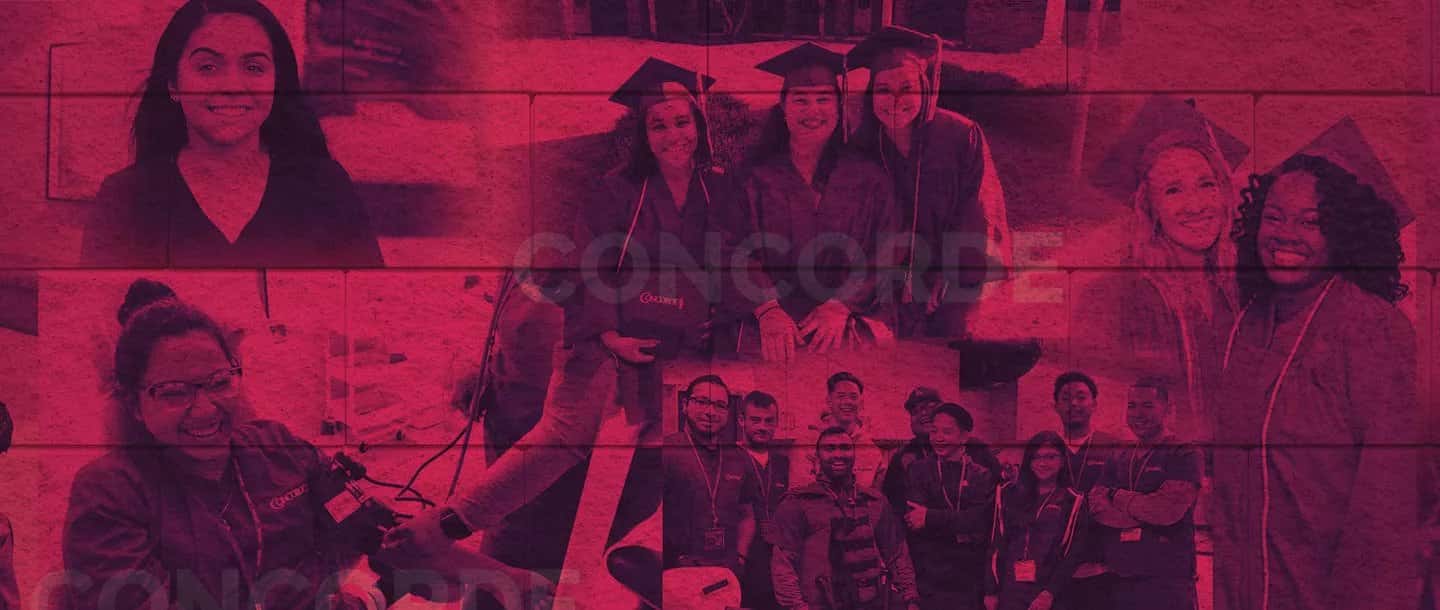What is HEERF
The Coronavirus Aid, Relief, and Economic Security Act or, CARES Act, was passed by Congress and signed by President Donald Trump on March 27th, 2020. This bill allotted $2.2 trillion to provide fast and direct economic aid to the American people negatively impacted by the COVID-19 pandemic. Of that money, approximately $14 billion was given to the Office of Postsecondary Education as the Higher Education Emergency Relief Fund, or HEERF. Learn More Here
Concorde's Campus HEERF Reports
You can view all of Concorde's campuses reports below. For additional questions or assistance, please contact your campus Financial Aid office or call 1-800-489-5106.
- HEERF Memphis/Southaven Campus- 6.30.21 (Updated 10.1.21)
- HEERF Portland Campus- 6.30.21 (Updated 10.1.21)
- HEERF Grand Prairie Campus - 6/30/21
- HEERF Jacksonville/Orlando Campus - 6/30/21
- HEERF Kansas City/ San Antonio Campuses - 6/30/21
- HEERF Memphis/Southaven Campus - 6/30/21
- HEERF Miramar Campus - 6/30/21
- HEERF Portland Campus - 6/30/21
- HEERF Aurora/Dallas Campuses - 3/31/21
- HEERF Grand Prairie Campus - 3/31/21
- HEERF Jacksonville/Orlando Campus - 3/31/21
- HEERF Kansas City/ San Antonio Campuses - 3/31/21
- HEERF Memphis/Southaven Campus - 3/31/21
- HEERF Miramar Campus - 3/31/21
- HEERF North Hollywood Campus - 3/31/21
- HEERF Portland Campus - 3/31/21
- HEERF Tampa Campus - 3/31/21
- HEERF Garden Grove Campus - 12/31/20
- HEERF North Hollywood Campus - 12/31/20
- HEERF San Bernardino Campus - 12/31/20
- HEERF San Diego Campus - 12/31/20
- HEERF Aurora/Dallas Campuses - 12/31/20
- HEERF Jacksonville/Orlando Campus - 12/31/20
- HEERF Miramar Campus - 12/31/20
- HEERF Tampa Campus - 12/31/20
- HEERF Kansas City/ San Antonio Campuses - 12/31/20
- HEERF Portland Campus - 12/31/20
- HEERF Memphis/Southaven Campus - 12/31/20
- HEERF Grand Prairie Campus - 12/31/20
- HEERF Garden Grove Campus - 9/30/20
- HEERF North Hollywood Campus - 9/30/20
- HEERF San Bernardino Campus - 9/30/20
- HEERF San Diego Campus - 9/30/20
- HEERF Aurora/Dallas Campuses - 9/30/20
- HEERF Jacksonville/Orlando Campus - 9/30/20
- HEERF Miramar Campus - 9/30/20
- HEERF Tampa Campus - 9/30/20
- HEERF Kansas City/ San Antonio Campuses - 9/30/20
- HEERF Portland Campus - 9/30/20
- HEERF Memphis/Southaven Campus - 9/30/20
- HEERF Grand Prairie Campus - 9/30/20

